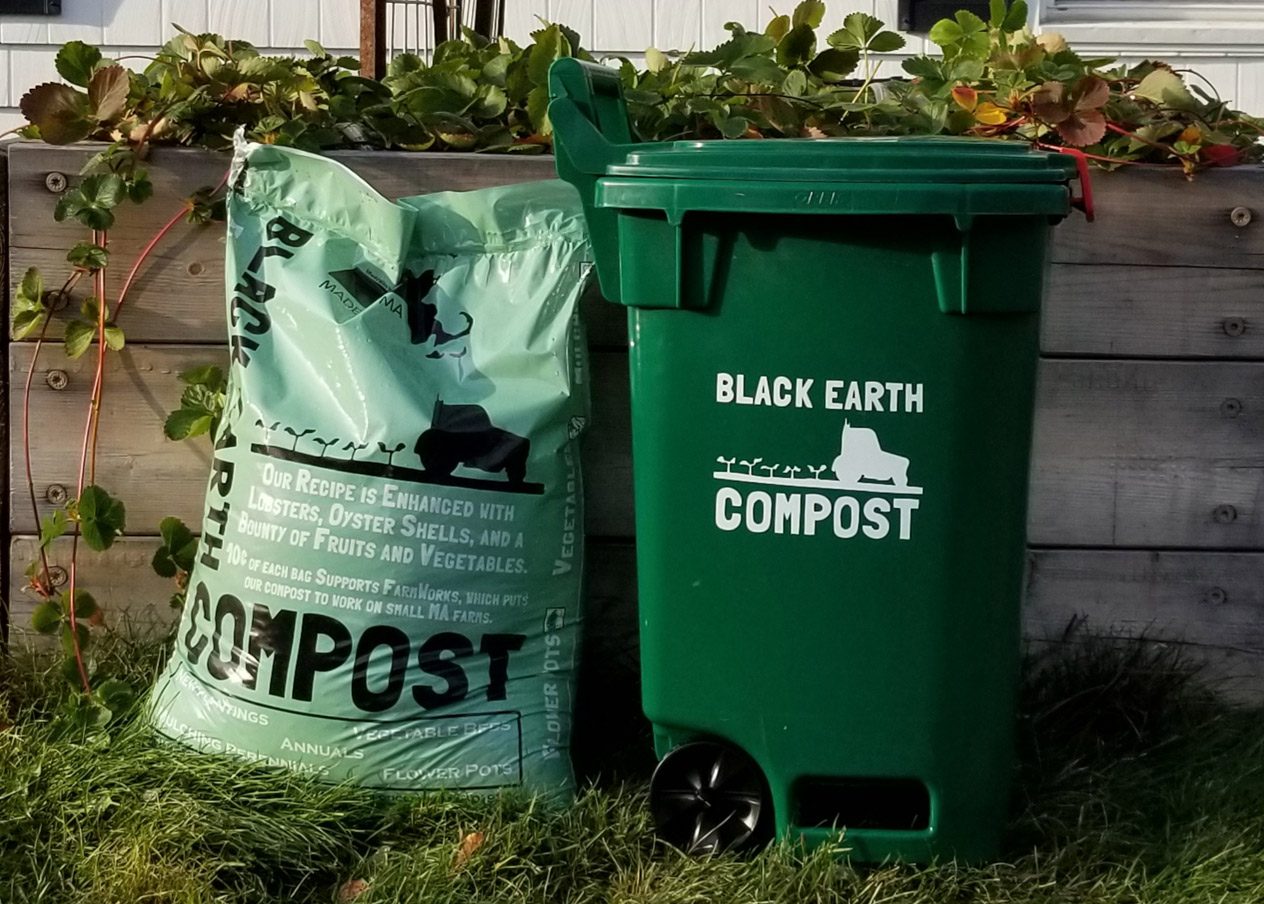
Clean Ocean Access’s mission helps both land and sea with natural remedies
By Danielle Rose
Newport, Rhode Island, “The City by the Sea,” has a history that is inexorably tied to Narragansett Bay and the Atlantic Ocean. Clean Ocean Access (COA) is an environmental organization with a mission to educate local communities to engage in more environmentally responsible habits. They bring awareness to how our actions on land affect our waterways. The link between the health of land and the health of the sea begins with people; easy curbside composting in RI is the key to helping the environment. Through a concerted plan of action, COA is bringing awareness to our community.
Compost: from garbage to garden, a zero waste initiative
Compost is decayed or rotting organic material (such as plants) that returns nutrients back to the soil for plants to use. Recycling waste through composting reduces landfill and reduces the need for chemicals that eventually enter the oceans as runoff. Compost is the most natural way to condition and improve the soil naturally. Unfortunately, backyard composting bins can take months to break down household food scraps and yard waste into soil. This makes it difficult to effectively compost all household waste that could otherwise be diverted from landfills.
Black Earth Revival
According to Eva Touhey, COA’s Program Manager for the Healthy Soils Healthy Seas Rhode Island (HSHSRI) composting initiative, the program’s mission is to engage 2000 Newport County households in a program that collects scraps, processes them more efficiently, and returns to them rich usable compost. Engaging households to reduce their overall trash footprint is only one part of the solution. Businesses also need to play their part.
Therefore, COA and HSHSRI have teamed up with Black Earth. With two processing facilities, one in Groton, MA, and the other in Manchester, MA, they have the capability to collect literally tons of scraps from household and commercial locations and efficiently break it down into usable compost. The compost is then distributed to participating households for home use, and sold to farms for commercial use.
Depending on the volume of waste produced, businesses will receive 32-48 gallon receptacles for their organic waste. Whether residential or commercial, the receptacles are then emptied on a weekly or bi-weekly basis, similar to municipal curbside trash or recycling programs.
Municipalities like have different ways of funding this collaboration, from a “pay was you throw” to established transfer stations. As people see the benefits of these initiatives, they are able to bring new areas on board. Newport, Middletown and Portsmouth have been able to take advantage of the curbside compost program for a few years, and recently, Jamestown, and Bristol are also able to take advantage of it as well. The current roster of curbside composting clients include 60 commercial food-generating businesses accounts (including food pantries) and about 700 households throughout the area.
Easy curbside composting in RI
Due to climate change and an increase in heavy rain events, one of the biggest water quality issues is stormwater runoff. After a big weather event, water runs off of roofs, driveways, and lawns into the street. All that runoff, and anything caught up or dissolved into the water, (such as chemical fertilizers and garbage) goes into storm drains and finds its way into the waterways. As a soil amendment to yards or gardens, compost helps absorb more water before it goes into waterways. It encourages plant growth which helps to reduce runoff even more thanks to healthy root systems. Plants use carbon to grow, so using compost also helps absorb carbon into the atmosphere, providing an overall healthier ecosystem.
COA becoming a leader for a more sustainable RI
COA and Healthy Soils Healthy Seas R.I. is also the sustainability partner for Bowens Wharf Oyster festival, where they collected oyster shells for reef restoration. The program is also working with Newport Film outdoor music series to help reduce waste at events all summer long. Other partnering organizations include The International Tennis Hall of Fame, the Norman Bird Sanctuary at their Harvest Fair. and the seafood festival at Bowen’s Wharf.
“RI is a unique place to trial things like this because we have so many things in our municipalities that are transferable to other places,” Eva said. “‘The City by the Sea’, located in ‘The Biggest Little State in the Union’ can become an example for other cities and states to take the initiative to close landfills, protect the environment and make our communities more sustainable.”
To discover how you can take part in easy curbside composting in RI, and take advantage of special HSHSRI subsidized pricing, contact Clean Ocean Access and the Healthy Soils Healthy Seas Initiative at 401-236-2561.



 Help take care of both land and sea
Courtesy of Clean Ocean Access
Help take care of both land and sea
Courtesy of Clean Ocean Access  Help take care of both land and sea
Courtesy of Clean Ocean Access
Help take care of both land and sea
Courtesy of Clean Ocean Access